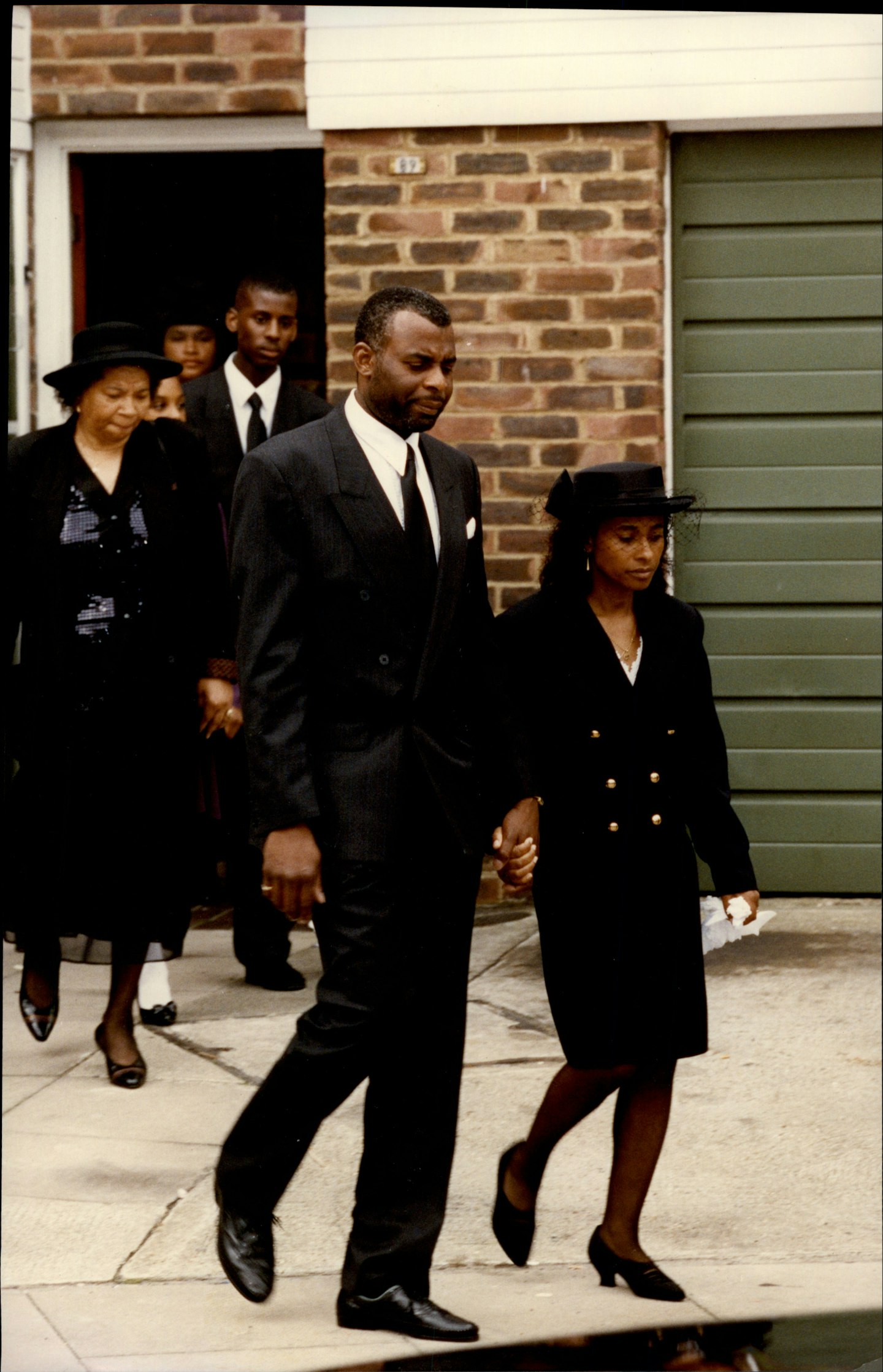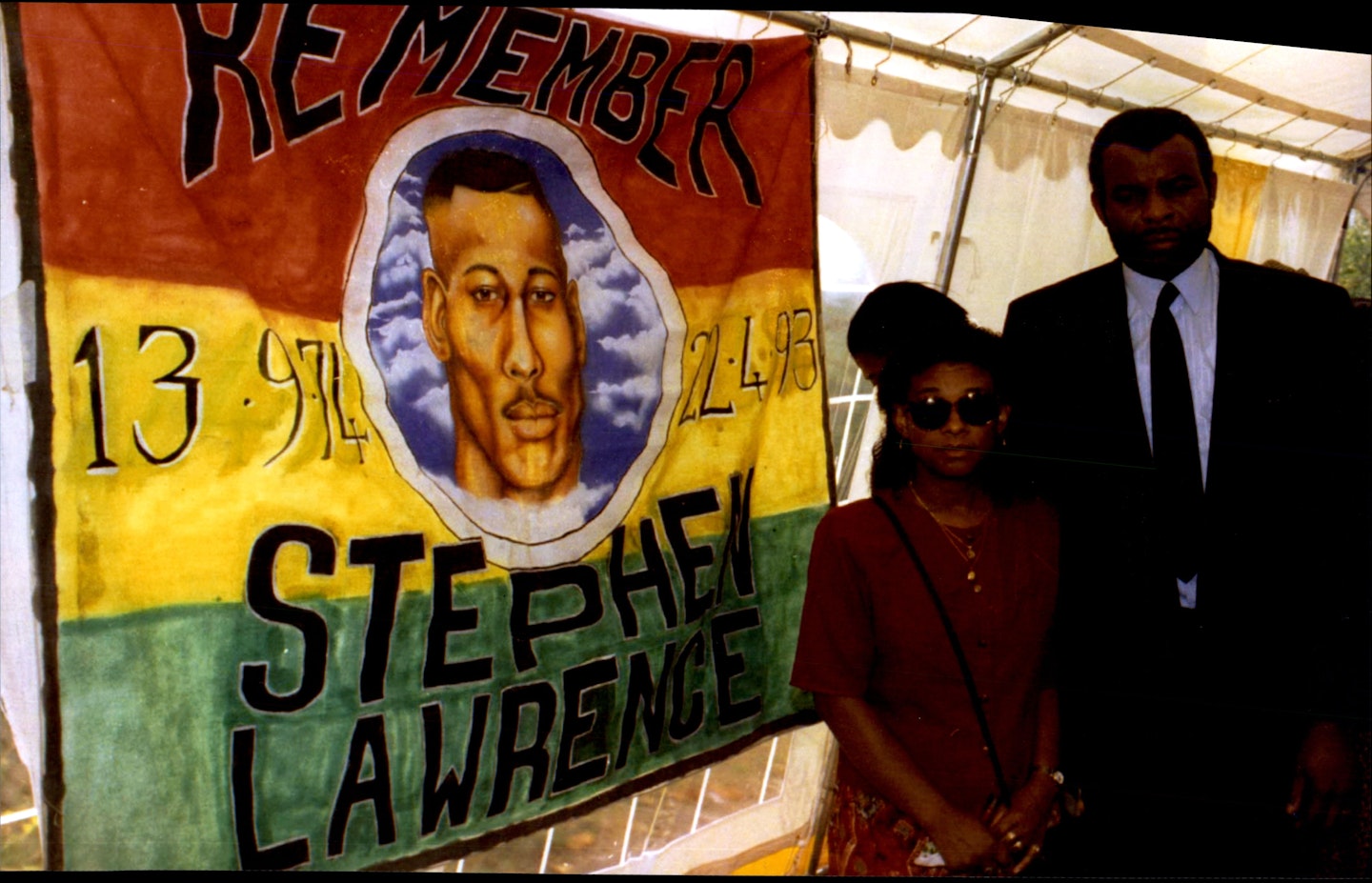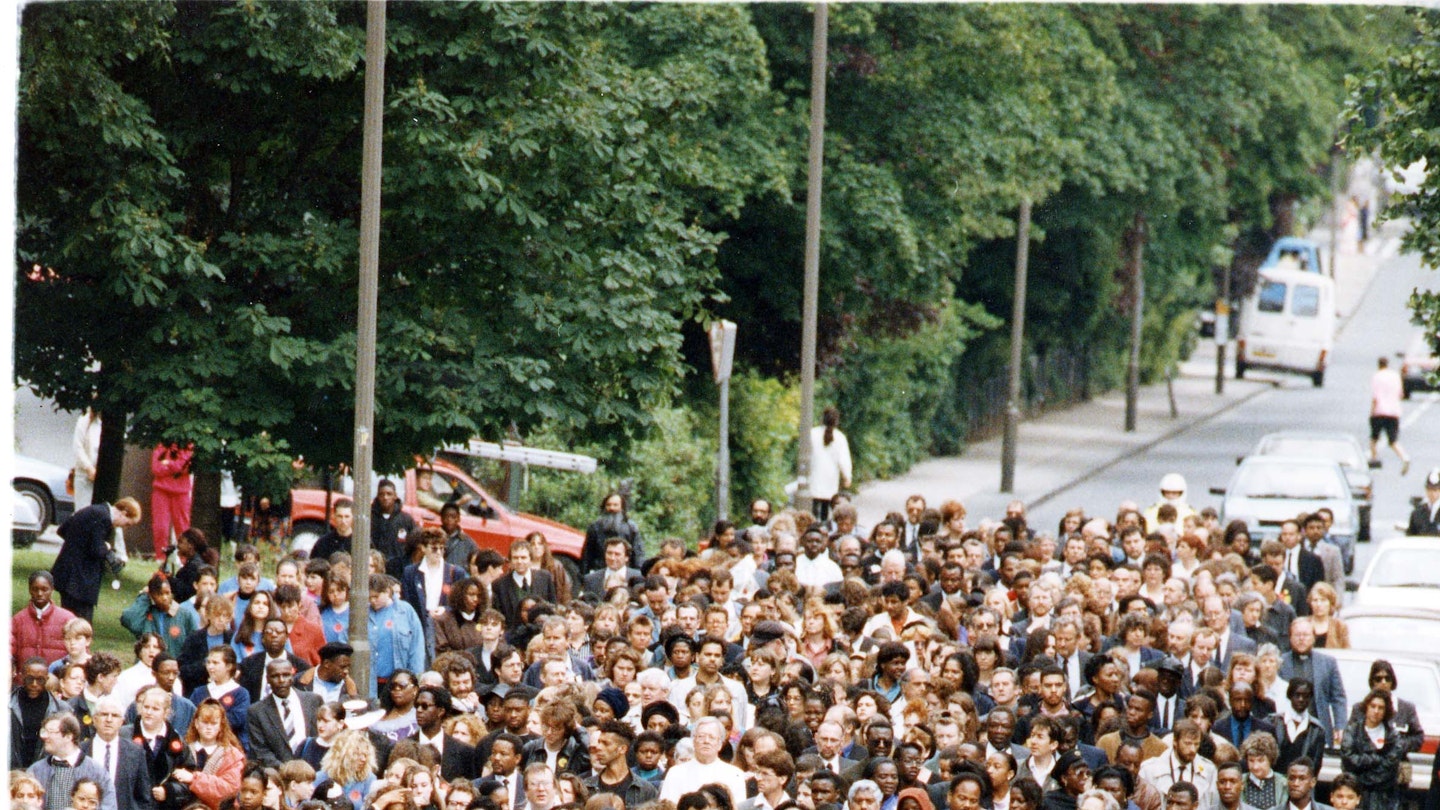A black teenage boy stabbed at a London bus stop. A grieving mother demanding justice. And a police force under intense pressure to act. Two and a half decades since 18-year-old Stephen Lawrence was knifed to death by a mob of white racists in Eltham, the facts of his murder are still frighteningly familiar, echoing through the killings that continue to stain London. ‘Black lives are still cheap,’ says Imran Khan, the lawyer who has fought alongside Baroness Doreen Lawrence for justice for her son since the beginning. ‘If you had 50 white people dead in the last few months, there would be absolute uproar.’
This week, to mark the 25th anniversary of Stephen’s murder, an emotional documentary reignites the debate that continued for longer than the handsome young A-level student was alive: have the lessons of this vicious attack, near Well Hall Road roundabout on 22 April 1993, really been learned? In Stephen: The Murder That Changed A Nation, told on BBC One over three episodes, acclaimed film-makers Asif Kapadia and James Gay-Rees tell the definitive story of that night and the seismic waves it triggered. The frank and moving testimony of almost everyone involved, from Lady Lawrence to the police officers who investigated the killing, reveals that far from healing the pain caused by this racially motivated attack, the passage of time has left wounds still desperately raw.
Sixty- five-year-old Lady Lawrence, for one, states, ‘My son was murdered and people seem to think that I may have moved on, that I may have got over it. I haven’t. I don’t think I have moved out of the other end. All I want to do is get justice for Stephen. Those idiots that murdered my son had more rights than him.’
Dr Neville Lawrence, Stephen’s father, estranged from Doreen since 1998 and who now heads a community knife crime taskforce for the Met Police, breaks down on screen as he recalls the last time he saw his son alive. ‘I was looking out of the window at people going to work and he saw me looking and said, “Dad, are you all right?” I said, “Yes.” He said, “OK Dad.” I watched him walk out of the house and turn down the alley. at was the last time I saw him alive.’
And Duwayne Brooks, who was with Stephen the night of the murder, remembers bitterly how police refused to believe that one of the attackers had shouted ‘What, what, n****r?’ He says, still struggling with the memory of the attack after all these years, ‘We were just at a bus stop in London. We were attacked at a bus stop in one of the greatest cities in the world.’
The assault took place just after 10.30pm on the night of 22 April, as Stephen and Duwayne waited for a bus to take them home after an evening playing video games at Stephen’s uncle’s house. Witness Alexandra Marie, an au pair working in Woolwich at the time, recalls, ‘They were chatty, joyful, lively, they were doing dance steps on the pavement.’
But then a group of white youths approached the boys on the opposite side of the road, ‘engulfing’ Stephen, stabbing him in the right collarbone and le shoulder. He managed to stagger away and ran after Duwayne, shouting, ‘What’s happened to me, man?’ He collapsed 130 yards later. In the documentary, a sobbing Duwayne, now 43 and a former Lib Dem councillor, recalls, ‘The police were being unhelpful. Stephen was lying there and bleeding to death; when they turned him over he was soaked in his own blood.’
Within days, the community was circulating the names of Stephen’s killers, but the police investigation was, in the words of Lady Lawrence, ‘incompetent and racist.’ Police were so slow to act that vital evidence was never recovered and, when arrests were finally made following an intervention by Nelson Mandela, the Crown Prosecution Service decided there was not enough evidence to secure a conviction. The suspects were released.

In April 1995, an increasingly desperate Lawrence family brought a private prosecution – the first in British legal history – against the initial two suspects, Neil Acourt and Luke Knight, and three others: Jamie Acourt, Gary Dobson and David Norris. The Daily Mail named all five suspects as ‘Murderers’ in a now-iconic front page, triggering a public inquiry that resulted in a change to the centuries-old double-jeopardy rule that had prevented cleared suspects being tried for the same murder twice.
Finally, in 2012, original prime suspects Gary Dobson, now 42, and David Norris, 41, were convicted when DNA and fibre evidence linked them to Stephen’s murder. The three other killers are yet to be brought to justice. Neil Acourt, Luke Knight and Jamie Acourt still protest their innocence.
For Stephen’s family, including his brother Stuart and sister Georgina, the ongoing agony is so intense that Lady Lawrence has called for the Met to draw a line under the 25-year inquiry, and to admit publicly that its chances of solving her son’s murder are now almost nonexistent. Lawyer Imran Khan, now a close friend, told Grazia, ‘I know Doreen is angry again. But she’s tired. She’s fatigued by it all. For me it was a job, for Doreen every time [there was a setback] it was “not again, I can’t deal with this”. She needs to survive.’
Mat Bickley, Stephen’s cousin, echoes the deep toll the murder took on the family. ‘It was really hard to be around Doreen, because it was so palpable, the waves of grief were radiating off her; the pensiveness. It’s not something you can get used to.’

It’s an example of the extraordinary candour expressed throughout this landmark documentary, which also shines a light on the fraught relationship between Stephen’s parents and Duwayne Brooks. Director James Rogan told Grazia, ‘We don’t avoid any difficult subjects and, to the credit of everyone involved, neither do they. Everyone knew we were going to talk about it honestly, so there will be pain that comes out of that, but people came to say how they really felt.
‘What makes this so relevant in terms of today is that, 25 years on, when you meet these people – Doreen and Neville and witnesses and family members – it is clear that they were profoundly traumatised. And the way they were treated afterwards really exacerbated that – there’s a big lesson in that.'
And the other lessons learned? Stephen’s cousin Mat, who moved away from London to the coast and now has children of his own, told Grazia, ‘More than just being the victim of a racist assault, Stephen is a poster boy for injustice, a reminder that you have to stand for something. He has made us look at ourselves as a society.’
Series producer Victoria Musguin-Rowe told Grazia, ‘There’s a whole generation of young people who don’t really know who Stephen Lawrence was. We want to show that, despite all the politics and the court cases and everything that came from it, it ultimately goes back to the fact that this young innocent guy lost his life.’
And the Met Police, once again in the spotlight over the deaths of black youths on the streets of London, last week issued a statement making a final plea for any information before the inquiry is shelved. Following Lady Lawrence’s comments that the force should admit it cannot catch her son’s killers, Detective Chris Le Pere said, ‘There is still the opportunity for someone who knows what happened that night to have a conscience and come forward. I would say to you, it is never too late to do the right thing.’
‘Stephen: The Murder That Changed A Nation’, is on BBC One on Tuesday 24, Wednesday 25 and Thursday 26 April at 9pm
